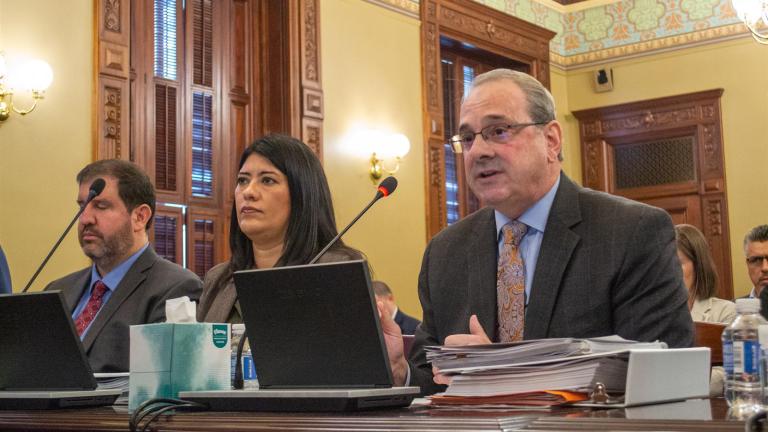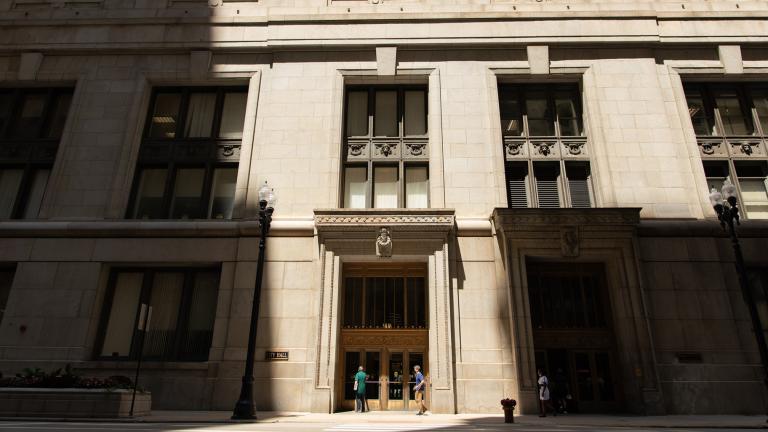The Illinois Supreme Court heard the first round of oral arguments today over the constitutionality of a pension law that cuts state employees' benefits.
After then-Gov. Pat Quinn signed his pension reform bill into law in December 2013, the labor unions sued the next month. Quinn's plan, that the Illinois Attorney General's office is arguing, gets rid of annual cost-of-living increases for retirees and raises the retirement age for workers aged 45 and under. Labor unions argue that the law violates a state constitution clause that says pension benefits cannot be "impaired or diminished."
The unions won their first round in court last November when Sangamon County Circuit Court Judge John Belz agreed with them, citing the clause in his six-page decision. So how has the case fared in its first day of arguments in the Illinois Supreme Court? Illinois Public Radio's Statehouse Bureau Chief Amanda Vinicky joins us from Springfield with the latest news.
Components of Pension Overhaul Law
- No 3% annual cost-of-living increases for retirees
- Retirement age pushed back for workers 45 and under
Pension Protection Clause in the Illinois Constitution
“Membership in any pension or retirement system of the State, any unit of local government or school district, or any agency or instrumentality thereof, shall be an enforceable contractual relationship, the benefits of which shall not be diminished or impaired.”
Illinois Solicitor General Carolyn Shapiro argued before the court that the state is in a fiscal crisis and unable to provide basic services to its residents. This, as she argues, necessitates a need for pension reform. Shapiro characterized the Plaintiffs, or the labor unions suing the state, as reading the pension protection clause as an “absolute right” instead of a contractual relationship open to adjustment.
“Like all contracts, they can be altered. They are not absolute. Everyone in our case apparently agrees that, as we explained in our opening brief, it is an order contact principle that contractual relationships are subject to the limitations on the basis of the state’s police power. It’s a basic background principle of law, that as this court explained in Kinerva, the drafter’s are assumed to have known.”
Attorney Gino DiVito, representing all Plaintiffs and labor unions, argued that the pension protection clause is plain and simple: retiree benefits should not be “impaired or diminished.”
“This is a case about a constitutional provision, one that is explicit, clear and unambiguous and that it is subject to no stated exception. The state has not cited a single case where the reserve sovereign powers and police powers have been held to override a constitutional provision, and that’s because there is no such case.”
Justices questioned whether the state put itself in this fiscal crisis, to which Shapiro pointed to the 2008 economic recession. Justices pointed to the fact that the pension funds were underfunded long before the recession. Shapiro and the state have asked the court to remand the case to the circuit court for fact finding as to how or whether the state contributed to the financial crisis it’s in.







